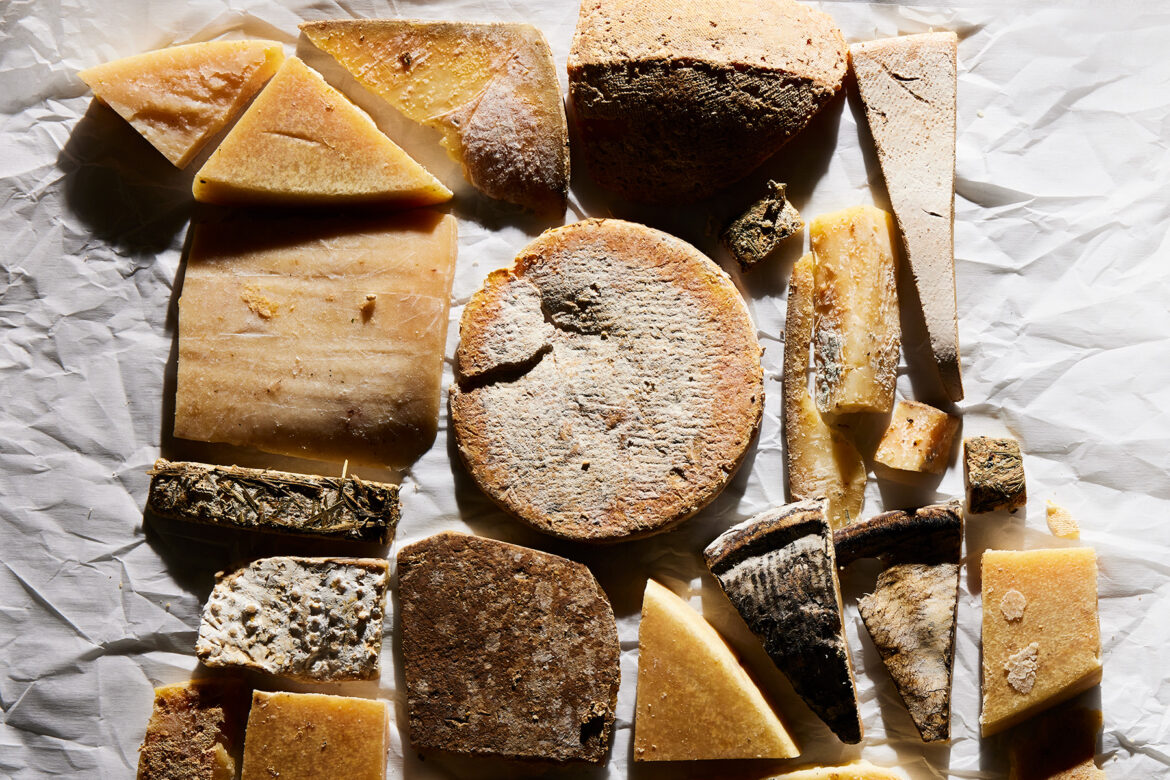I thought about the late Anne Saxelby, who forever changed the landscape of American cheese, on a recent trip to a local supermarket. I was stopped in my tracks at the impressively stocked cheese counter, displaying products from many of the local dairies that Anne had championed. There, nestled among dozens of domestic and imported cheeses, were several small containers of cheese rinds, which struck me as an exciting, albeit unexpected, discovery. That this supermarket would actually see value in selling these oft-neglected odds and ends, and that customers might even pay for them (gasp!), is a sign of progress in our woefully wasteful food world.
Anyone who knew Anne, the founder of Saxelby Cheesemongers, who tragically passed away last October, could not help but be forever impacted by her infectious reverence for cheese. From her tiny, cubby-like perch, first at the Essex Street Market and then at a slightly grander cubby in Chelsea Market, she brought a laser-like focus to the craft of artisanal American cheesemakers. She was the ultimate cheese evangelist who made you a believer in the transcendent nature of curdled (local) milk. All of her irresistible talk about the marvels of grass and milk and microbes and cellars infused each wheel and wedge with life that you could taste in every bite.
But what to do with those cheese rinds? Well, why not honor Anne’s work and gently simmer those hardened ends and moldy morsels with a handful of aromatic vegetables and herbs to produce an umami-rich cheese broth that will become a kitchen staple? I use it in everything from risottos to soups, and occasionally reduce it to glaze a simple dish of fettuccine and pancetta. It’s an homage to an ancient craft, a less wasteful world and, of course, to Anne.
RELATED: From the Archive: How Anne Saxelby, Brought American Cheese to America
Cheese Rind Broth
Ingredients:
2 cups cheese rinds and scraps (Natural, washed and bloomy rinds are best. No waxed or cloth rinds.)
1 small onion, roughly chopped
2 cloves garlic, smashed
1 bay leaf
Scattering of herb stems
Directions:
Place all the ingredients in a medium pot. Cover with 6 cups of water and simmer for 1 hour. Strain and chill, then compost solids.
Adam Kaye is the cofounder and chief culinary officer at The Spare Food Co.
Mark Weinberg is a photographer of several best-selling books about food, including Dorie Greenspan’s Baking with Dorie: Sweet, Salty & Simple.



